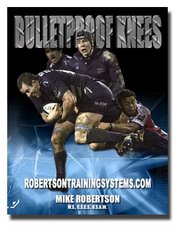I’m constantly reminded that all athletes are not created the same. And I’m NOT just talking about their biomechanics or physiology.
In my ~9 years in the field, I’ve had the pleasure of working with a wide variety of athletes – weekend warriors and high school kids, all the way up to professional level ball players. One of the most interesting aspects of this is looking at how motivation levels differ between groups.
High school kids will, generally, have the lowest level of motivation. Quite often kids aren’t even cut anymore, and many are content just to “be on the team.” Collegiate level athletes will generally have more motivation across the board than high school kids, but less than a professional.
Now, keep in mind this is still an individual thing – you’ll always have your extremely high or extremely low motivation athletes on any given team, but as a general rule of thumb this works.
Motivation level then plays into how you must coach any given team or group. With lower motivation athletes, you’re going to need to do a little bit more “prodding” to get them going and performing at the level you’d like. These will generally be the kids that you need to work the hardest with, and there may be a certain level of hand-holding until they start to see progress and/or change.
In contrast, high level athletes inherently understand that doing weight training, plyos and agility drills will improve their performance. These are the athletes with whom you can take a more “hands-off” approach, and will respond well to tweaking and minor coaching adjustments. They’ll be the best at helping you regulate a large group of athletes, and may even pick up and employ some of the coaching tactics you use! Anyone who has ever had a high-motivation kid who’s also the best athlete on the team knows what I’m talking about here.
Quite simply, you can’t treat all levels of athletes the same. Determine their level of motivation and adjust your coaching style as necessary.
Mike Roberston
High Octane Corrective Exercise and Performance Enhancement | www.RobertsonTrainingSystems.com
Wednesday, October 3, 2007
Subscribe to:
Post Comments (Atom)









No comments:
Post a Comment